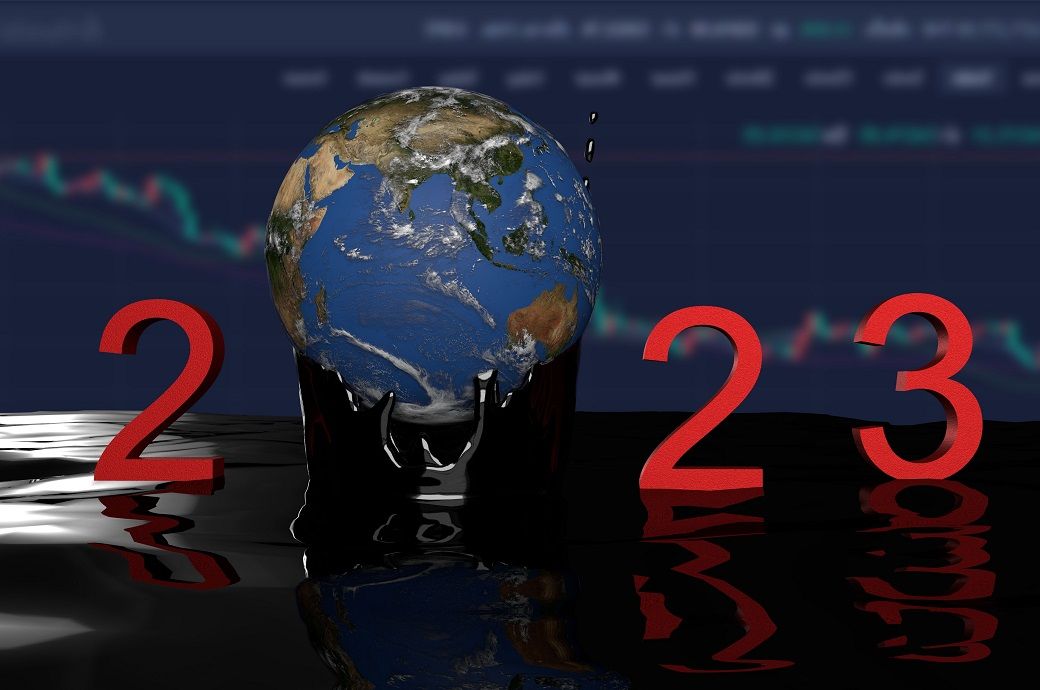Global economic growth forecast to slow to 2.1% in 2023: World Bank

Insights
- Global economy is projected to decelerate from 3.1 per cent in 2022 to 2.1 per cent in 2023, according to a World Bank report.
- Emerging economies face financial risks amid higher interest rates.
- Growth in EMDEs excluding China is expected to slow to 2.9 per cent this year.
- Report underscores increased vulnerability of economies with low creditworthiness.
The economic expansion in EMDEs, excluding China, is set to slow down to 2.9 per cent this year, a considerable drop from 4.1 per cent in 2022, in response to widespread downgrades. Despite the banking stress in advanced economies, most EMDEs have remained relatively unscathed. However, the increasingly stringent global credit conditions have led to a quarter of these economies effectively losing access to international bond markets.
Particularly at risk are EMDEs with pre-existing vulnerabilities such as low creditworthiness, for whom the growth forecasts for 2023 are less than half of those projected a year ago. This situation leaves them highly susceptible to further economic shocks, as per the World Bank’s latest Global Economic Prospects report.
“The surest way to reduce poverty and spread prosperity is through employment—and slower growth makes job creation a lot harder,” said Ajay Banga, President, World Bank Group. “It’s important to keep in mind that growth forecasts are not destiny. We have an opportunity to turn the tide, but it will take us all working together.”
The recent global incidents—the COVID-19 pandemic, the Russian invasion of Ukraine, and a significant economic slowdown due to tight global financial conditions—have had a long-lasting impact on development in EMDEs. By the end of 2024, these economies are expected to be around 5 per cent below the levels projected before the pandemic.
Advanced economies are not immune to the downturn, with growth rates expected to fall from 2.6 per cent in 2022 to 0.7 per cent in 2023, remaining weak into 2024. The US economy, in particular, is projected to grow by only 1.1 per cent in 2023 and 0.8 per cent in 2024, primarily due to the lingering impact of the sharp rise in interest rates. The euro area is also expected to see growth slow down from 3.5 per cent in 2022 to 0.4 per cent in 2023, largely due to tightening monetary policy and increasing energy prices.
Increases in two-year treasury yields are primarily driven by investor expectations of aggressive US monetary policy to control inflation, resulting in potentially harmful financial effects in EMDEs, including a heightened probability of financial crisis, the report added.
Furthermore, the report provides a comprehensive assessment of the fiscal challenges confronting low-income economies. Rising interest rates have further worsened their fiscal conditions over the past decade, with public debt averaging about 70 per cent of GDP. An alarming 14 of these low-income countries are currently in, or at high risk of, debt distress.
Fibre2Fashion News Desk (DP)
































-Ltd..jpg?tr=w-120,h-60,c-at_max,cm-pad_resize,bg-ffffff)





.jpg?tr=w-120,h-60,c-at_max,cm-pad_resize,bg-ffffff)
.jpg?tr=w-120,h-60,c-at_max,cm-pad_resize,bg-ffffff)






